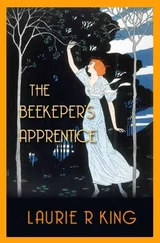Sarah D'Almeida - The Musketeer's Apprentice
Здесь есть возможность читать онлайн «Sarah D'Almeida - The Musketeer's Apprentice» весь текст электронной книги совершенно бесплатно (целиком полную версию без сокращений). В некоторых случаях можно слушать аудио, скачать через торрент в формате fb2 и присутствует краткое содержание. Жанр: Триллер, на английском языке. Описание произведения, (предисловие) а так же отзывы посетителей доступны на портале библиотеки ЛибКат.
- Название:The Musketeer's Apprentice
- Автор:
- Жанр:
- Год:неизвестен
- ISBN:нет данных
- Рейтинг книги:4 / 5. Голосов: 1
-
Избранное:Добавить в избранное
- Отзывы:
-
Ваша оценка:
- 80
- 1
- 2
- 3
- 4
- 5
The Musketeer's Apprentice: краткое содержание, описание и аннотация
Предлагаем к чтению аннотацию, описание, краткое содержание или предисловие (зависит от того, что написал сам автор книги «The Musketeer's Apprentice»). Если вы не нашли необходимую информацию о книге — напишите в комментариях, мы постараемся отыскать её.
In a search for his apprentice's killer, Musketeer Porthos rallies his friends to discover who was responsible, pursuing the truth even as he puts his own life in danger.
The Musketeer's Apprentice — читать онлайн бесплатно полную книгу (весь текст) целиком
Ниже представлен текст книги, разбитый по страницам. Система сохранения места последней прочитанной страницы, позволяет с удобством читать онлайн бесплатно книгу «The Musketeer's Apprentice», без необходимости каждый раз заново искать на чём Вы остановились. Поставьте закладку, и сможете в любой момент перейти на страницу, на которой закончили чтение.
Интервал:
Закладка:
Presently, he heard Aramis close his box of drawing materials, saw Bazin take it, and heard, without being fully able to understand it, Aramis give instruction to Bazin on where to find a coffin and Athos give instructions to the ever-silent Grimaud, his servant, on where to put the coffin in the wine cellar.
He wasn’t aware of the servants leaving, but they must have left because when Aramis tried to hand Porthos one of the pieces of paper with the boy’s picture, the servants were no longer there and D’Artagnan and Athos were standing by the door and looking back at Porthos with the worried expressions of people standing by a sick bed.
Porthos disciplined his face to show no emotion. So the boy was gone. So he would never grow up into the brave, determined man he’d promised to be. How many boys had died too young since the world had begun? It didn’t bear thinking about.
One glance at the picture Aramis had drawn showed him, as it were, Guillaume brought to life momentarily, with an expression of self-confidence in his eyes and the slightest of smiles on his lips.
Porthos rolled it carefully and held it in his hand. It didn’t bear looking at too much.
The Differences Between a Pedigree and a Baldric; The Differences Between Murder and Friendship
ARAMIS knew Porthos well enough to be alarmed at his friend’s reactions. Grief for the boy, he could understand or almost understand. But there was a seething rage in Porthos’s look; a sense of fury being held barely in check.
It was not natural in Aramis, the turn of mind that rejoiced in the company of children or young adults. Rather, he considered them as yet not fully formed humans who must by the action of society and the guidance of a caring adult become polished exactly like a pebble becomes polished by the action of the sea. And while there were those who might value unpolished pebbles for their natural charm or their interesting surfaces, Aramis, with his elegant appearance, his careful education would take his jewels properly faceted or not at all.
So he didn’t understand, first of all, why Porthos would choose to associate with a juvenile of the species, rough and ready and unable to share interesting court gossip, or comment on Porthos’s choice of fashion. Part of this, of course, made him wonder if Porthos valued Aramis’s friendship quite as much as Aramis thought. And another part made him wonder if Porthos was the man he thought he was. Which, of course, bore an important weight on this subject, because his certainty that Porthos had not murdered the boy rested primarily on his knowledge of Porthos.
All this was in Aramis’s mind as-after waiting for what seemed like much too long for Porthos to change into his usual gold-hedged and gaudy musketeer’s uniform-he and Porthos left Porthos’s lodging through the garden and the back gate and started to the left towards the broad street that would take them to the royal palace. To the uneasiness of such thoughts, he must add the fact that Porthos was looking at Aramis out the corner of his eye and twirling his moustache now and then, not in the way he would when he was showing it off for maid or duchess, but in the way he did when deep in thought or faced with a puzzle he couldn’t decipher.
Aramis was ready to accept Porthos’s grieving over the boy-though the whole thing confused him. What he was not ready to do was accept that Porthos was also suspicious of Aramis. Suspicious of what, in God’s name? And why? Surely Porthos didn’t think Aramis had snuck up on the boy early morning and filled his confits with belladonna juice because the boy was a juvenile and therefore more trouble than profit in the world? If Aramis were to turn to that for reason, he’d be busy strangling babes in their cribs the whole livelong day.
They walked up the crowded street side by side, in the heavy foot traffic of late morning. Men and women either rushed home for a meal or hastened out and about their pursuits, assignations and meetings, duels and celebrations. Now and then the sound of horses’ hooves from behind made passersby rush onto the side of the road and flatten themselves against the wall-or against other passersby already flattened against the wall-while carriages with coats of arms on their doors, or horses’ rushing under the impulse of the riders’ whips passed them by.
It was after one of those moments of immobility, flattened side by side against the stone wall of what appeared to be a house of ill repute, while perfumed ladies in scant attire and their wine-soaked customers pressed against them, that Aramis decided he could take it no more.
“Porthos,” he said. “Why do you keep looking at me as though you suspected me of unnameable crimes?”
Porthos looked startled. He blew out breath under his abundant red moustache. “Me? Suspect you of crimes? Forbid the thought. I would never suspect a friend of a crime.” He rubbed the bridge of his nose. “It is that my friends think other people would believe I was a criminal. That is what puzzles me. Not angers me, mind, for I’m not a wrathful man. But it astounds me.”
Porthos being subtle and trying to subtly give hint of offense would cause the same disquiet in most bosoms as a rabbit, its muzzle stained with blood, chasing a lion around. Aramis was human enough to be disquieted but even more human in feeling amused at Porthos’s attempts at hinting something.
“Porthos,” he said at last. “I don’t suspect you of anything. You know that! But you’re looking at me as if I’d killed your favorite hound and had designs on your horse.”
Porthos harrumphed, another behavior that didn’t come naturally to him. “You and Athos both surely sounded like you thought everyone at large would believe I might kill an innocent child to prevent my pedigree from being divulged. As though I could care less who my ancestors were, other than the most recent ones.” He made a sound in his throat as if spitting. “I didn’t know nobility, even of birth, much less nobility of mind and behavior, could be measured by how many noble ancestors a person could count. I always thought it was just what it was at the moment of birth.”
Oh. So that was what was working at Porthos. At least this, Aramis was prepared to understand. “I’ve always considered you noble enough,” Aramis said. “At least…”
Another harumph and Aramis hastened to add, “I mean, I’m not sure I look at nobility the same way others do. Look at me, I let my servant run on and on at me about my misbehavior and how I should long since have entered the church.”
This elicited a chuckle from Porthos, which, at least, had the advantage of sounding like natural Porthos. “We all think Bazin would be made far more acceptable by a regular thrashing, or at least the liberal use of a muzzle.”
This was such a common complaint, that Aramis smiled, for a moment, and forgot he was aggrieved with Porthos, before coming back to his main argument. “The point is,” Aramis said, “that though Bazin is no more than the son of tenants on my parents’ land, I know he was brought up for the church as I was, and his mind is, if not the equal of mine-” Did Porthos truly need to snort? “If not the equal of mine, at least close enough to it that what he says might illuminate my path as I try to make myself worthy enough to enter the church.”
Porthos made a sound again. “So you’re not sure what’s noble and what isn’t, but you believe this could be a plot to implicate me? That people, strangers and people who’ve talked to me, would think I killed just to prevent it being known that not all my ancestors were noble? And killed a child, yet?”
Aramis shrugged. “We all know you to be proud, Porthos, all of us.”
“Indeed? In what way am I more proud than any of you?”
Читать дальшеИнтервал:
Закладка:
Похожие книги на «The Musketeer's Apprentice»
Представляем Вашему вниманию похожие книги на «The Musketeer's Apprentice» списком для выбора. Мы отобрали схожую по названию и смыслу литературу в надежде предоставить читателям больше вариантов отыскать новые, интересные, ещё непрочитанные произведения.
Обсуждение, отзывы о книге «The Musketeer's Apprentice» и просто собственные мнения читателей. Оставьте ваши комментарии, напишите, что Вы думаете о произведении, его смысле или главных героях. Укажите что конкретно понравилось, а что нет, и почему Вы так считаете.










